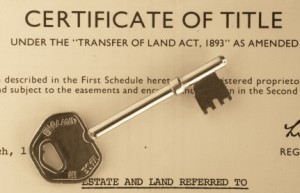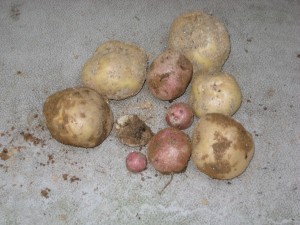Emilie Richards's Blog, page 143
November 7, 2010
Which Comes First, The Novel or the Title
While I'm out of town visiting family and waiting for the arrival of the new grandchild, I thought I'd share a blog I wrote for Fresh Fiction in June of 2009. A search tells me it never appeared here, so enjoy now. I'll be back with new blogs next week.
Which comes first, the novel or the title?
There is no question that authors are odd. We hear voices in our heads. We stare blankly at walls for hours, leaving those around us to wonder if we have, without fanfare, passed away. We save things other people toss out or never possess in the first place. Real estate circulars. Missing children inserts. Photographs that show nothing except, perhaps, the curve of a cheek or the shape of an eye. We keep files. Oh yes, we keep lots and lots of files. Jotted notes of overheard conversations. Newspaper articles about mortgage fraud. Three word phrases that might vanish in the night.
Authors are almost always asked where our ideas come from. No matter how many times I'm asked, I'm not annoyed by this question. In fact I can relate. Myself, I wonder about architects, particularly those who design hotel lobbies and airports. Where did those ideas originate, and can we please extinguish the source? Or artists. Take Jackson Pollock. What possessed the man, other than an urge to pour lots of paint on lots of canvas?
For most authors, ideas come from everything. There is no one trigger. For me, and I hesitate to admit to this, titles are often key. In the case of one of my newer novels, Happiness Key, title was paramount, if not the first thing that set me thinking.
The initial inkling that a book was percolating came on a trip down a Cleveland, Ohio street. I was struck by how much one house looked like the other. All were nearly identical, then as I drove a little farther, I saw one in the middle of the block that was completely different. A new facade, unusual landscaping, a porch where none existed elsewhere. I wondered about the people inside and the neighbors. I wondered how everyone got along, and what they thought of this renegade.
Fast forward to Happiness Key, which takes place in Florida, not Ohio. And the houses are not exactly the same, although they are run down. And there isn't one renegade, but four women who are all, in their own ways, rebels. Hmm. . . Can you see the connection? A glimmer? Half a glimmer?
Although the Cleveland jaunt was the catalyst for my novel, the moment I realized I wanted to set this one on Florida's Gulf Coast, where I had grown up, the book began to change. And ten seconds later, when the title occurred to me, the novel began to fall in place.
Happiness Key. The key to happiness. What is happiness? How do we find it? How do we ruin it? And are we even capable of recognizing it when it lies in the palm of our hands?
There is no question authors are odd. Two words can become a novel. Of course there's a lot of staring at walls in the interim. A lot of files. A lot of junk piling up on desks. Me, I've given up worrying about how it happens. That it happens is enough for me.
I hope it's enough for my readers.
November 3, 2010
Digging for Gold In My Own Backyard
Since I'm traveling today, I thought you might enjoy a blog I wrote last fall for Suzanne Beecher who runs " Dear Reader " book clubs online. Suzanne's book clubs are a great way to have book excerpts sent directly to you each weekday, in a genre you choose.
For the record, and a year later, I did NOT plant potatoes this growing season. But next year? Who knows?
I'll confess I'm enchanted by thoughts of buried treasure. Novelists are a romantic lot. My practical friends see tumbledown houses and vacant lots, and they think about septic fields and new construction. I see stories buried in the rubble. Beside that spindly willow? A chest with great-grandmother's pearls and a photo of the man she lost, protected against the ages in a heart-shaped locket. Under those decaying steps? Letters from a long dead president, explaining why he did or didn't go to war, and how the decision haunted him.
With that in mind, with thoughts of a hundred possibilities, today I dug in my own front yard. Not for gold coins. Not gold jewelry. Yukon gold potatoes. Buried last spring where sensible people would have planted shrubs. Buried with hope and ceremony and tender, loving care.
Many years ago, during my first sojourn here in Virginia, I grew potatoes. I planted them on St. Patrick's day and thought of my Irish ancestors, wondering proudly what they would think of my green thumb. Unfortunately, nostalgia and pride do not a garden make. In keeping with the theme, my yield mimicked the Great Famine. Had I depended on my harvest, I would have been the last of my line.
This year I was determined to succeed. Again on St. Patrick's day, I dug holes and placed my starchy hopes at the bottom. And as the plants sprouted and grew, I covered them with soil and mulch and optimism. I calculated when to dig my buried treasure and imagined the dishes I would cook.
My result? Nine potatoes. Not a one as large as a dainty lady's fist. Some just a smidgen larger than my thumb.
Treasure is like that. Sometimes the long awaited prize is far different from what we anticipated when we began the hunt. Writing can be that way, too. Sometimes a completed novel is not what we envisioned. A book, like a potato patch, takes on a life of its own and becomes a fat family saga, or a slimmer, more intimate volume. The result might be potato salad instead of potatoes au gratin, a simpler story, earthier, perhaps even tastier.
This year, despite my best efforts, my potato patch was only a short story. But what a succulent bowl of potato salad those nine potatoes will make. At month's end, as I launch into my latest book, I'll remember them and proudly smack my lips. Once again I'll be immersed in anticipation and possibilities. And when the last word is written, I'll be proud of the result and delighted my imagination and hard work carried me to that place.
October 31, 2010
The More Things Change, The More They Stay The Same: Abe Lincoln and the Election of 1860
One of the joys of living in Northern Virginia is experiencing the past. So much American history was made right here, and no drive into the nation's capital goes by without finding a building I've never noticed before, in which events that rocked the world took place.
When the National Park Service recently offered a chance to visit Arlington House, the former home of Robert E. Lee–in what is now Arlington Cemetery–I jumped at the opportunity. The event was a kick-off for the commemoration of the sesquicentennial of the Civil War, which will be observed over the next five years. This particular event was a look at the presidential election of 1860, in which four candidates competed for office. As part of the evening's entertainment, we were to listen to four re-enactors stumping for "their" candidate, then vote, even those of us of the female persuasion, and those people of color among us, neither of which had any say in the real election.
We're particularly interested in all things Lincoln at my house. My husband's family claims a relationship through a great-great-grandmother who was a cousin of Lincoln's mother. As these things go, the story is more fun than doing the actual geneaology would be. But, of course, we went to cast our vote for Cousin Abe.
The evening was perfect, cool and clear, and the road leading up to Arlington House was softly illuminated by lanterns. Our National Park Service guide was charming and well-informed, and the walk to the house was lovely with a moon shining brightly and the lights of the city below. As we were serenaded by a period brass band, our mission was to listen to supporters of each of the four candidates give stump speeches, complete with costumes and soap boxes, and decide for ourselves which man–of course they were all men–to vote for. In a gesture of 21st century concilliation, even the women and people of color in the crowd were allowed to cast ballots.
That's when the evening began to feel "real" to me. Because even though 150 years have passed since the campaign leading up to Lincoln's election (in which 60% of voters voted AGAINST him) listening to the various candidates' supporters, I felt as if I were sitting in front of my own television set, watching the increasingly obnoxious ads in the Maryland governor's race and local Virginia races too numerous to mention.
Without fail, in almost every one of these campaigns, past and present, the ads or speakers have twisted the facts about the other candidate's record, refused to address the real issues facing the people they want to govern, avoided giving any actual information about their plans for our future or how they'll go about accomplishing them. They promise no new taxes, while also promising expensive solutions. They point fingers, avoid answering questions and hope that buzz words will carry the day instead of logic. Those with money try to buy their way into our voting booths.
Lincoln's campaigner was every bit as off key as the rest. I wonder if, at the end of that particular speech, Lincoln would have stepped forward to say, "I'm Abraham Lincoln, and I approved this message."
This is a serious time in our country's history, and the following is not a partisan request. Whatever you do, whomever you vote for, together let's "ignore" the ads and the speeches and the cute nicknames that tell us nothing we need to know when we go to the polls on Tuesday. Let's do our homework and vote with clear heads for the candidates who have been honest and taken a risk to tell us what they believe and really plan to do. Maybe if we do, eventually, candidates will begin to do more of the same.
A hundred and fifty years have gone by since the election of 1860, but despite a flawed process, I think we made a good choice with Cousin Abe. Now let's wend our way through the garbage strewn trail of television lies, and do it again this year.
October 27, 2010
More Infrequently Asked Questions–From the sublime to the ridiculous
 I had so much fun answering questions a few months ago that I decided to ask for more on my Facebook Page to go with some I've saved from emails. In the future, if you have a question that's not answered on my website at my FAQ (under Bio at the top), please email me to ask directly. You should see FAQ when you pass your cursor over Bio. If you don't, the Internet gods are playing tricks. Sometimes I see it, and sometimes I don't. My webmaster is trying to fix this. If you don't see it, please shoot me an email to forward to him so he'll know I'm not crazy–which he doubts.
I had so much fun answering questions a few months ago that I decided to ask for more on my Facebook Page to go with some I've saved from emails. In the future, if you have a question that's not answered on my website at my FAQ (under Bio at the top), please email me to ask directly. You should see FAQ when you pass your cursor over Bio. If you don't, the Internet gods are playing tricks. Sometimes I see it, and sometimes I don't. My webmaster is trying to fix this. If you don't see it, please shoot me an email to forward to him so he'll know I'm not crazy–which he doubts.
Which brings me to question number one.
What drives you absolutely, blooming nuts, and how do you deal with it? Funny you should ask. Technology! My Internet's going on and off, and Comcast not only has no idea why, they, too, think it's in my head. Then to add insult to injury, the new DVR we got from them comes with no instructions. They assured me we need none, even though it's not working. I won't go into my manifold past problems with my phone company–you can see them in a prior blog–except to say that after complaining to everyone in the entire Northern Hemisphere, I've been asked to testify in Richmond at a hearing about the company's poor service record. I plan to be there.
Are you as vindictive as you sound? Nope. I just think things I'm paying for should work. Call me. . . nuts (someone's already done that, see the question above.) BTW, Comcast techs are some of the nicest people out there. We're practically on a first name basis.
Both Happiness Key and Fortunate Harbor have long sections about the pleasures of pie. You have pie recipes on your website. Is pie one of your favorite foods? Oddly, no. But cupcakes–a real weakness of mine–were already well done (no pun intended) by others. And pie is so versatile. I am inordinately fond, though, of any pie with chocolate in it. And occasionally, Key lime.
Do you write in your PJs? I've been known to go to the computer in the morning wearing my bathrobe. It's that kind of job. Ideas come at all times and in all places. Of course, it's hard to explain this to the UPS man when I have to sign for a package.
Do you plan to write a sequel to Prospect Street? Most likely that will not happen, but I never say never. Just discovered that a series of three novels I'm finishing now (Berlin Noir by Philip Kerr) was followed up many years later with more in the same series. It can happen.
Which of your characters do you admire most and why? Wow, great question, but then it comes from the great Casey Daniels, author of thrills, chills and mystery. If I spent hours on this, I might come up with a different answer. But the first character who comes to mind is Grace Cashell of Sister's Choice, book five of the Shenandoah Album series. Grace sets aside plans for her life and pitches in to raise her nephews, surmounting great difficulties without complaint. Along the way she pursues her own creative agenda and lives life fully, despite all obstacles.
And finally for today: How do you choose character names? I blogged about this nearly a year ago right . In addition to the five major points I made then, there's one more I can make now. A name has to be unique enough for the reader to remember, and (usually) common enough that it doesn't stick out like a sore thumb. Sometimes you need a sore thumb, but you must have a good reason. Naming characters is just as difficult as naming children. And let's not forget I don't want to use the same names in book after unrelated book. So my store of possibilities is narrowing. Maybe we'll have some polls here when I begin my next series.
Thanks for asking. I'm always up for answering more questions in another IAQ blog. The more colorful (as opposed to embarrassing) the better.
October 24, 2010
Deadline Delicacies: You Can Write and Eat Your Veggies, Too
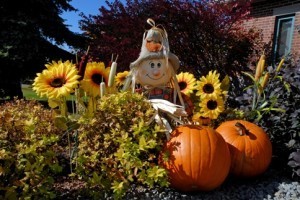 October in Virginia is the last gasp for fresh vegetables at our local farmer's market. Having just mailed off my latest book, I took the morning to visit and stock up for a week of roasted veggies. While the pickings were slimmer than they'd been a month before, I still returned home with armloads of goodies to roast. The last of the fresh eggplant (I bought three of the paler, striped version, 6 to 8 inches long), three small, firm zucchini, shining onions, colorful peppers, and garlic.
October in Virginia is the last gasp for fresh vegetables at our local farmer's market. Having just mailed off my latest book, I took the morning to visit and stock up for a week of roasted veggies. While the pickings were slimmer than they'd been a month before, I still returned home with armloads of goodies to roast. The last of the fresh eggplant (I bought three of the paler, striped version, 6 to 8 inches long), three small, firm zucchini, shining onions, colorful peppers, and garlic.
Instead of putting my lovely finds away to wither in my fridge, I immediately washed and chopped (all the epplant, zucchini, three peppers, along with one large onion and four cloves of garlic) into 3/4″ cubes, adding two cubed potatoes from my cupboard, some chopped chili peppers I'd grown myself, and a small bag of baby carrots, just as they were. In a large bowl I tossed everything with several tablespoons of olive oil until they were lightly coated and glistened. In went chopped herbs from my herb bed, Greek oregano, basil, rosemary, and Creole seasoning. Trust me, if you've spent any time in Louisiana at all, a meal isn't a meal without Tony Chachere's or his buddies.
Next I spread the veggies on two , lightly oiled cookie sheets and popped them into my oven at 450 degrees. Fifteen minutes later I stirred and flipped, which I continued to do at five minute intervals until they were cooked through and beginning to caramelize, or turn a bit brown around the edges. I like mine a bit more shriveled than my husband does, so we compromised at about 30 minutes.
Once they cooled, I put my two quarts of roasted veggies in my fridge to use all week. And wow, the possibilities are endless. No sauteeing, boiling, baking this week. The work was done.
Although I was "past" deadline, roasted veggies are a huge favorite in our home whenever we're under the gun. You note how approximate my directions are? That's because almost anything goes. Use what you have. Use whatever is fresh. Root veggies, pumpkin, sweet potatoes, broccoli and cauliflower are great in the winter; squashes and eggplant are great in the summer. I've used turnips, kohlrabi, parsnips. Everything tastes great roasted, even veggies I wouldn't touch any other way. And the finished product is particularly wonderful to have around when there's little time for cooking. The only real output is the chopping, but once cooked, you're set for the week.
And what to do with them? Here are three ideas to stimulate your imagination.
Using this fabulous and foolproof pizza dough recipe, I brush the uncooked crust (stretched on my pizza pan) with garlic infused olive oil, then put a layer of roasted veggies on top. Not so thickly you can't see patches of crust. I sprinkle grated mozzarella on top, dollop with goat cheese, and finish with slices of fresh (Roma is best) tomatoes. Bake at 475 for 10-15 minutes, or until the crust is golden brown.
Fill an omelet with your roasted veggies and a little goat or feta cheese. Yum!
And last night? I made homemade pesto from my herb garden basil, (I use 1 cup of olive oil in this pesto recipe, not 1 1/2) froze half my batch in ice cube trays for the winter (pop them into a freezer bag once frozen), then mixed the other half with about 2 cups of my roasted veggies. Since I had fresh baby bella mushrooms, I sliced and sauteed about 8 and added the veggies to these to heat, then the pesto. Pesto should not be overheated. We tossed this with 8 ounces of cooked farfalle pasta, and sprinkled about 1/4 cup crumbled feta on top. Pure bliss, and there are leftovers for tonight.
Roasted veggies are also fabulous as a plain side dish, with perhaps a little goat or feta cheese sprinkled on top. The possibilities are endless. Best of all, this is healthy fast food. No trip through the drive-through needed. And veggies? Brain food all the way. You'll write better; you'll read better.
Have more ideas? We'd love to hear. I'm thinking "quiche."
Thanks to "Maverick crafter" Margi, for suggesting on my FB page that I write about favorite fall comfort foods. Margi, this one's for you.
October 20, 2010
Eyes Wide Open, and Pen (?) in Hand
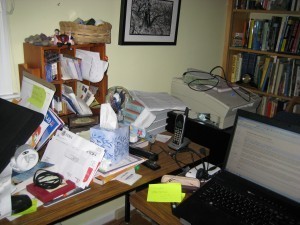
Emilie's Study AFTER a book is finished
** Be sure to read to the end for a chance to win an autographed novel.
Yesterday, Monday, was celebration day. On Sunday I sent Sunset Bridge to my editor. These days that's as "easy" as attaching the manuscript to an email and clicking "send." Of course everything that went before? Not so easy. Months and months of hard work, and at the end, seven days a week of it. Recently when I eked out time to attend our early morning church service, I could see the greeter silently struggling over whether to send me to the visitor's table, since I looked unfamiliar. My husband is his minister.
Submitting a novel, particularly one that's the culmination of a series, is a bittersweet experience. Last night as I lay awake at two AM, I found myself imagining what life will be like for my characters in a future that will never be recorded. Clearly I haven't let go of them. In a series that depended so heavily on characterization, letting go will be doubly difficult.
On the plus side? I'm FREE!!! At least for a little while. Free to refill the well, to clean my study–does it look like it needs it?–to weed bushels and bushels of bad guys from my gardens. To make the baby quilt that will shortly be used by a new granddaughter. Free to help out after the birth, to visit friends and family, do a library appearance and another at the Buckeye Book Fair in Wooster, OH. What fun!
Last night, to note this historic occasion, my husband and I took the Metro into DC to a Latino restaurant we wanted to try. Normally we drive, an event so fraught with anxiety we usually stay in Northern Virginia. This time we breezed in on DC's subway system, and in ten minutes we were walking down G Street, just two blocks from our destination. The food was fine, but the trip? The trip was so filled with color, that despite my break from writing, I found myself storing scenes for the future.
Apparently my imagination has yet to note we are on a well deserved break.
Readers often ask where we get our ideas. Here's the truth. There's a magic door inside each of us, and when we fling it open, ideas are jostling to be the first over the threshold. How can I NOT use that real life scene last night at the Metro station when three talented African-American men in Redskins shirts assembled and began an impromptu a capella performance of Motown and gospel music? How can I NOT record that my husband and I, so delighted with the entertainment, danced while we waited for our train? Or that a dozen different people dropped money into their bucket, and everybody applauded.
How can I NOT point out that when we take the DC Metro at rush hour, the conversations around us will be about the Iraq war (by people instrumental in policy) or the inner workings of some esoteric bureau we never knew existed? Or that riders, desperate for personal space, will block an empty seat with a briefcase or purse. Or that some others prefer to stand, so they have a clear shot at the door. Or that the live announcer can't be heard but computer generated messages are clear as a bell–which means it's easy to miss our stop, but if we happen to notice it and leap to the platform, we'll remember to avoid closing doors.
How can I NOT someday note the number of homeless people in this affluent corridor, the exquisite carved stone detail on the landmark Colorado building, the way downtown DC, unlike Manhattan, clears out as darkness descends.
You want to write a novel? You don't have to dig. Open your eyes, take out a pen, or your iPad or any note taking device, and simply record whatever you notice. Let it percolate. At worst, you have details for a scene you might someday write. At best? An entire plot could unfold.
See, there's a young woman who works in the Colorado building as a paralegal. One night on her way home, she notices a man collecting money for a trio of a capella performers, and he seems vaguely familiar. Once she's on the Metro–standing so she can leap off and get home quickly for a date with a guy from some shadowy government bureau–she remembers WHY he looked familiar. . .
Now it's YOUR turn. Try taking what I've told you and building your own plot. On Thursday October 28th I'll do a random drawing of everyone who comments here and gives us a line or two of story, using at least one of my observations. The winner will receive an autographed copy of one of my novels, your choice of any paperback if I have extras on hand. Don't be shy. Don't try to be Hemingway. Have fun.
October 17, 2010
You Say You Want A Digital Revolution?
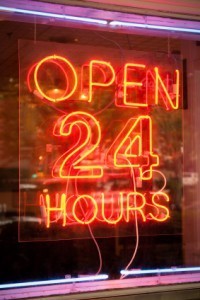 If you read my recent blog on writers and friendship, you know I spent last week at the Novelist's Inc. workshop on St. Pete Beach, my old stomping grounds. It's always a surprise when I go home to find not the huge changes we sometimes see, but a re-creation of the past. My neighborhood looks much the same. The old Pelican Diner where my aunt worked is gone–and what a shame–but the hardware store where my uncle worked is still thriving. (The diner, an old silver "mobile" diner is hopefully being refurbished in a warehouse nearby.)
If you read my recent blog on writers and friendship, you know I spent last week at the Novelist's Inc. workshop on St. Pete Beach, my old stomping grounds. It's always a surprise when I go home to find not the huge changes we sometimes see, but a re-creation of the past. My neighborhood looks much the same. The old Pelican Diner where my aunt worked is gone–and what a shame–but the hardware store where my uncle worked is still thriving. (The diner, an old silver "mobile" diner is hopefully being refurbished in a warehouse nearby.)
If my childhood landscape was much the same, the conference convinced me that publishing is not. In fact publishing is going through such huge changes, that in the next two years, keeping up with them will be a job itself. I arrived at the conference thinking that the book biz was spiralling downward, fewer sales, fewer publishers exerting more control, fewer opportunities for innovation. I left believing the sky's going to be the limit. And all because of ebooks.
Do you own an ereader? Or are you in a "wait and see" holding pattern? Is a Kindle or a Nook–or any of the other possibilities–at the top of your Christmas list? Or are you holding fast to paper and the comfort of the familiar? Are you sure you're too old (jaded, technically challenged, angry) to learn yet another piece of technology? And heck, you can't see print that well anymore, so why try to read it on a fuzzy handheld computer screen?
I'm something of a skeptic, and I was not at the head of the pack when I bought my Sony eReader several years ago. I didn't buy the newest version either, but one a generation behind, because I liked the resolution better. I bought it solely because as an author, I needed to understand what the fuss was about. To start I downloaded free classics, and some surprisingly generous giveaways. The day I stretched out my hand to turn the page of my eReader as if it were a paperback novel, I realized how quickly I had adapted. Two pages into a story it no longer mattered how the story was delivered. Better yet, I could change the font size, so if the print was too small, I could make it large enough to suit myself.
Even better? I could download a book any time of the day or night. 24 hour downloads, just in case I had a truly gargantuan attack of insomnia. Even during daylight hours I didn't have to get in my car to find the nearest bookstore, something that's not particularly easy in DC traffic. If a friend told me about a great book, it could be mine in minutes. No more delayed gratification. Wow.
While I still buy plenty of print novels, now I always check the digital version first. Sales of ebooks are soaring. And if that's not enough of a reason to perk up an author, here's the clincher. Publishing our OWN ebooks is now in reach. Yes, original ebooks written by some of your favorite, tried and true novelists. Published exclusively as ebooks on places like Amazon, B&N and Borders online, the Sony store. The list goes on. Smashwords, A Writer's Work, and other smaller venues. Authors with control over their own product, their marketing strategy, and reaping far more of the "cover" price.
Wow, times two.
Many of us have books out of print that we still own the rights to. Many others have "ideas" they've wanted to try and now can, taking the full brunt of success or failure themselves. We can price our books low, high or in between, try this cover art or that, package them this way and that way. Discontinued series can be revived. Books that didn't sell to a publisher may now climb bestseller charts. The possibilities are endless and exhilarating.
Christmas will be the big benchmark for ebooks. The prices for e-readers are falling within acceptable boundaries for many book lovers. The price of ebooks may fall along with them, at least those that are author generated. Stay tuned here as I conduct my own experiments. I have two novels I own full rights to, and they've been out of print for a decade. Expect to see updated versions again, hopefully before the Christmas rush. And expect to see them priced so that buying them will be a pleasure.
I hope someone brings back the Pelican Diner. There's room for the old and the new. I will always buy and read print novels. But having an alternative? It'll be a good thing for readers and authors. For bookstores and publishers? It's going to take a little scrambling to catch up, but as a big fan of both, I am certainly hopeful that in the end, this will be a good thing for all of us.
For more on this subject, enjoy this Huffington Post essay by Joe Konrath.
October 13, 2010
With A Little Help From My Friends
 Earlier in the fall I asked my Facebook readers what topics they would like to see here at Southern Exposure. Brandi Jones asked about my relationship with other authors. She wondered if we critique or brainstorm together, help each other out of writer's block or even lend ideas. She was surprised at the lack of rivalry she witnessed.
Earlier in the fall I asked my Facebook readers what topics they would like to see here at Southern Exposure. Brandi Jones asked about my relationship with other authors. She wondered if we critique or brainstorm together, help each other out of writer's block or even lend ideas. She was surprised at the lack of rivalry she witnessed.
I spent most of last week at the Novelist's Inc. conference in St. Petersburg, Florida. "Brainstorming on the Beach" was billed as a chance to reconsider the future of publishing along with movers and shakers in the biz. Since NINC is my favorite writer's organization, and since St. Pete is not only my hometown but also close to "Happiness Key," attending was a no-brainer for me. I could celebrate finishing Sunset Bridge, my latest novel, check on my 92 year old father and attend workshops if they were interesting enough. Plus I could do a little research and sit on the beach as I did.
As it turned out, the visit with family was the only part of the trip that went as planned. The book was NOT finished on time–still editing–and the workshops were simply not optional. They were, in fact, highly frustrating, since every one was so good that choosing was agonizing. What beach time I experienced was in the company of other professionals, and conversation took precedence to studying seagulls. Rarely have I gained as much from a conference as I did from this one. Publishing is changing at the speed of light, and now I'm at least aware of the possibilities.
The one plus I hadn't even considered when I registered was the pleasure of being with friends. I'm online with many of my favorite writers, and I keep up with their lives. Of course being online is a poor substitute for being in the room or on the sand together, something I rediscovered immediately. A funnier, smarter, more perceptive group doesn't exist. And now, when many of us have decades of publishing experience behind us, the conversation never lags.
All friendships are special, and friendship's a subject I've considered in depth since the first Happiness Key novel. Friendships among colleagues, though? Sometimes touchy, sometimes impossible. Those of us who write similar books are vying for the same readers. Some of us are treated better by our publishers. Some hit gold and others are just hoping to pay the mortgage and stave off creditors. Publishing is rarely fair and always stressful.
And yet? We're friends nonetheless. Because when it comes down to it, we ALL want to read good books. Who would I read if my friends left the biz? Who would I talk to about deadlines and proposals, word count and e-publishing? Who would understand when I moan that the book in progress (every book) just isn't coming together the way I hoped? Who else would understand when I suddenly stop in mid-sentence and say "I just figured out how to murder Ralph?" Who would applaud?
Although many of my writer friends do not hold my political beliefs, are members of different churches, have opinions I don't share, what we have in common, besides our chosen careers, is this. As a group, right down to the newest of the newbies, we are curious. We want to know everything, and we want to spin what we learn into different universes, into situations that "might" happen, into problems and possibilities. We want to tell stories, even if no one ever reads them. We want to imagine new outcomes for the simplest interactions. And more than that? We want to share all this with people who understand.
So thanks Julie, Pat, Diane, Jasmine, Barbara, Jimmie, Carole and more. I loved being with you, just as I always have. You and my other writer friends are a big part of the reason I continue doing what I do. And thanks, Brandi, for suggesting this blog.
October 10, 2010
They Don't Call 'Em "Dead"lines For Nothing
 I spent yesterday searching for hidden objects. What time I didn't spend with nose to ground–a skill I learned from the local beagle–I spent watching half the appliances in my house fall apart. Ah, some people look for signs of changing seasons, colored leaves gently drifting to the ground, that first tracing of frost on window panes. Novelists see the changing seasons of their deadlines in all the signs around them.
I spent yesterday searching for hidden objects. What time I didn't spend with nose to ground–a skill I learned from the local beagle–I spent watching half the appliances in my house fall apart. Ah, some people look for signs of changing seasons, colored leaves gently drifting to the ground, that first tracing of frost on window panes. Novelists see the changing seasons of their deadlines in all the signs around them.
I am "this" close to finishing Sunset Bridge. Even if I didn't know that because I'm the author, I would be able to tell just by looking at the state of my house.
First sign: Nothing has been put in its proper place for months. That's right. Months. Things have been "straightened" at least a little, but the time to get them where they really go? Could I afford that when there were sentences to rework, plot threads to tie up, characters to admonish? So things ended up in, well, for lack of a better term, deadline purgatory, that temporary abode where they don't quite fit and sometimes, prayer is needed to get them where they really belong.
You think I'm kidding? My favorite black pants, which need to go to Florida with me this week to the Novelists Inc. conference in my hometown of St. Pete? I actually cleaned out my closet–at least the floor–looking for them, along with the "other" slipper to a pair I like best. Floor clean now, slipper still missing. The pants, however, eventually turned up in my husband's closet, put there, most likely, by the infamous pants gremlin who sneaks in and rearranges clothing when we aren't looking. And when we're on deadline? He comes twice as often.
The slipper is still on my Most Wanted list–likely a product of the Nemo gremlin–but the Turkish cookbook with the recipe for lentil soup I'd planned to make last night? Not on my cookbook shelf. Not on my overflow cookbook shelf. Not on my desk, not on coffee tables, not beside or under my bed. Not on the sun porch. And the other recipe for lentil soup that I wanted to try? Folded neatly in, you guessed it, my Turkish cookbook. Both finally turned up on my dining room table when there was no longer enough time to make soup.
Second sign: Although we've been home from our summer cottage for a month, many of the things we brought back with us haven't yet been integrated. Two jars of everything in my refrigerator, when one would do nicely. Clothes still to go to the dry cleaners. Magazines and mail yet to go through. Last night I found a $100 coupon to try Google ads, but it was three days over the deadline. Ah well, who had time anyway?
Third sign: As if to say stop ignoring me in favor of the women of Happiness Key, yesterday my garbage disposal died. The cheese drawer in my refrigerator flips down the moment the door is opened, as if my poor overcrowded fridge is sticking out its tongue. The VCR? Please! Does anybody's VCR actually work? Apparently, since we allowed TIVO, which also died recently, the major place in our hearts, VCR has no intention of being cajoled back into favor. Even a brand new package of tapes didn't help. Okay, too busy to shop I snatched them from a neighbor's garbage, but they were still wrapped. How did my VCR know?
I can't believe I'm saying this, but one of the finest things about sending off a book? Cleaning my house. Making peace with my appliances again. Locating the missing. I am sure, as my reward, my slipper will reappear with only a few teeth marks, my microwave will not give up the ghost, and those dust bunnies who've acquired names and personalities, will happily hop off to that great briar patch in the sky.
May all that happen soon. Otherwise, the next time I start a book I won't be able to find my computer. Could we blame it for hiding?
October 7, 2010
The Write Way: Come On, Did I Really Say That?
Time for another The Write Way blog, so listen up. For those of you in the know, once a month–or thereabouts–I present my take on how to write a novel. Pop over to the "categories" listing to the right and click on "The Write Way" to see all those that have gone before. If you're not writing a novel yourself, haven't you always wondered how it's done? Here's your chance to find out.
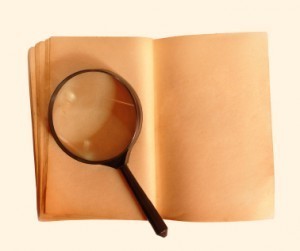 I've already addressed editing a manuscript once before, with an overview of how I go about it. Today I thought it would be fun to "show" you, using Sunset Bridge, my manuscript in progress. After all, Sunset Bridge is uppermost in my mind. What better time for examples?
I've already addressed editing a manuscript once before, with an overview of how I go about it. Today I thought it would be fun to "show" you, using Sunset Bridge, my manuscript in progress. After all, Sunset Bridge is uppermost in my mind. What better time for examples?
If you read my first foray into the subject, you know that once I've finished a novel, I do several stages of revisions before my editor sees my final product. I begin by sitting down with my first draft and reading through it in one sitting. This, as you can guess, has gotten progressively harder as the books expanded. These days, if I want to finish in one sitting, I start EARLY and read straight through until dinner time.
But why put myself through this? Do readers read a novel without a break? Who cares? Regardless of how and when its read, the story should still have a graceful, even thrilling, arc. We write it one word at a time, and while we hope that in our planning stage we've got some sort of handle on that arc, we're never quite sure until the manuscript is finished. Did the book begin with a bang, introduce the characters and elements, then build slowly toward a climax? Or did we begin with a whimper, lose what heartbeat there was in the middle, and only end with a flourish–by which time no one is reading to discover how brilliant we are? Reading the novel in one sitting will help answer that.
Early this week I finished the silent read through on my eReader (a great time and tree saver) and spent my writing time thereafter making the changes the book truly needed. As I read, I made notes and bookmarked the sections they applied to. As technology goes my eReader is ancient, so I had to make notes on real PAPER. How antiquarian. However, this had a hidden benefit. I couldn't make changes as I went. I could only note the problems with the story, consistency and most important the way the book developed. That was the point, and fixing details will come later, when I do the final out loud read through.
Now what did I find? And what am I changing? What problems might YOU want to look for in your own work?
The biggest problem–and I knew this one going into the read through–was the backstory of one of my characters. I'd created a complex scenario behind her arrival on Happiness Key, but by the time I had written two-thirds of the rough draft, I knew I had a problem. Her actions weren't sufficiently explained to make her sympathetic. Unsympathetic characters? Something important to watch out for during revisions.
I spent hours considering and reconsidering how to change this, and finally settled on a solution. I even blogged about it here. But my silent read through convinced me that my so-called solution was worse than the problem. So I was back at square one. Luckily square two made itself known once I had the whole manuscript in front of me. Of course! The answer had been there all along, simpler, graceful, emotional and grounded in reality. I let the character tell me why she was the way she was, and finally, I listened. Lesson for you? Make sure everything your characters do makes sense and makes them sympathetic. We should even feel a tug of connection and understanding when a character turns out to be a killer or an abusive father. We don't have to like him or feel his choices were good ones, just connect.
So what else must I change? First, I know that as I write a first draft, I tend to say the same thing ten different ways. Either I forget I've said it, or I think of a better way to say it again and again. So at this stage and the next, I choose the best way I've said something and delete the others. Shorter book: good thing. Watch out for repetition, and delete everything but the best and the brightests insights and writing.
I found six pages at the beginning of a chapter that had no purpose. I summarized them in a paragraph and rid my novel of the rest. Find those places and say goodbye. They're only words, after all, not pieces of your soul, even if you did write them.
I made two other big changes in addition to lots of little ones. In my original version I have an important conversation between two characters, one of whom is rarely in the novel otherwise. Now this vital conversation takes place between two major characters and takes care of two plot points at once. Make sure each scene counts in as many ways as possible.
The last big change? While the Happiness Key series switches viewpoints among the women who live there, at the end of Sunset Bridge, I neglected to include the viewpoint of one of the core three women. We needed to hear the conclusion of her story directly from her. So now, of course, the ending and my character's news, is much stronger. Pay attention to your use of viewpoint and look for consistency throughout the novel.
Once I finish everything that my silent read through brought to my attention, I'll begin the laborious task of changing the novel, one sentence at a time. But that's actually the fun part, the final shaping, the shading, the honing. And yes, the cutting. Always, the cutting. Now, the story's there to play with. Getting to that point was the tough part, but first drafts can always be changed and should be. Keep plugging, even if you sense problems brewing. Go back if you know how to fix them, but if you don't? Trust you'll see how to fix them when you edit. Remember, you can't edit a blank page. So what are you waiting for? Otherwise all this advice? Completely useless.

